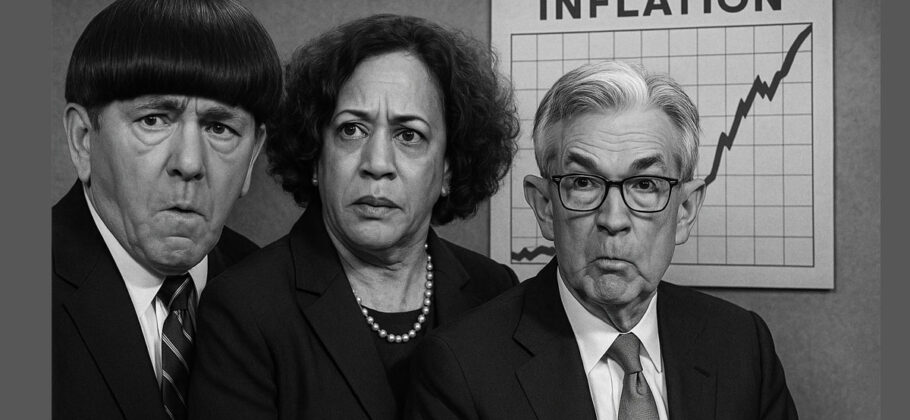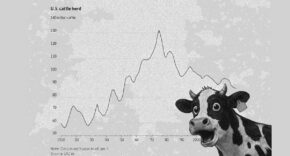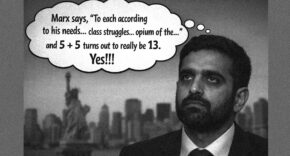The Census Bureau’s latest report makes clear that American families have not recovered financially since the pandemic. Inflation wiped out nearly all of the wage gains that workers thought they had made, leaving incomes stagnant in real terms. As the Wall Street Journal reported, “Inflation ate into Americans’ wage gains last year, leaving household incomes little changed beyond the richest households.” For millions of families, the last year of the Biden administration was one of disappointment, where rising prices consumed every dollar earned.
Statistics and Results
The numbers reveal the depth of the problem. The inflation-adjusted median household income in 2024 was $83,730, nearly identical to the previous year and not significantly different from 2019. This means that five years after the pandemic began, Americans are still stuck at the same income level. According to Bankrate’s Wage to Inflation Index, prices rose 22.7 percent between 2021 and 2025, while wages increased just 21.5 percent. The gap of negative 1.2 percentage points shows that paychecks are not keeping up with inflation.
Not everyone was affected equally. Incomes for the wealthiest households rose 4.2 percent in 2024, while middle- and lower-income families saw no meaningful gains. Racial differences were also striking. Median income for Black households dropped 3.3 percent to $56,020. In contrast, Hispanic households rose 5.5 percent to $70,950, and Asian households climbed 5.1 percent to $121,700. White non-Hispanic households were unchanged at $92,530.
The gender gap worsened as well. Full-time male earners saw a 3.7 percent increase in income, while women’s gains were statistically insignificant. As a result, the female-to-male earnings ratio declined to 81 percent, down from 83 percent the year before. The Census Bureau noted that this marked the second consecutive year that women lost ground compared to men.
How Workers Are Impacted
Workers across the country continue to feel the strain. As one Buffalo resident explained, losing her full-time job forced her into lower-paying freelance work, and even then, “I have no bargaining power. If I don’t do the job, there are countless people who are willing to do it for less. It feels like a race to the bottom.” Her frustration is echoed by economists who warn that workers’ efforts are being erased by circumstances beyond their control. “A wage increase is something you earn. Inflation is something that happens to you,” said Martha Gimbel, executive director of the Yale Budget Lab.
This sense of unfairness is widespread. Americans see their wages rise on paper, yet their money buys less food, less gas, and less security. According to surveys, half of adults said their overall financial situation had worsened since the 2020 election. Even today, more than half of Americans believe the economy is on the wrong track.
The Pressure on Retailers
Retailers are caught in the middle of this crisis. Heather Long, chief economist at Navy Federal Credit Union, warned bluntly, “The middle class is tapped out.” Families no longer have the spending power they once did, which forces businesses to choose between raising prices and losing customers or holding prices steady and cutting elsewhere, often through wages or benefits. Inflation created a cycle where both consumers and businesses suffer.
Federal Reserve officials have acknowledged that these pressures remain. “Someone will have to pay for these higher import taxes down the line,” Fed Chair Jerome Powell said, pointing out that either retailers, companies, or ultimately consumers would bear the cost. For many families, that cost has already been devastating.
Expert Assessments
The end of pandemic-era aid only made things worse. Programs such as expanded child tax credits temporarily reduced poverty, but once they expired, millions were left vulnerable again. Neale Mahoney, an economist at Stanford, explained that the expiration of these programs “helped push the poverty rate back up.” The Census Bureau estimated that 12.9 percent of Americans, or about 43.7 million people, lived in poverty last year. For Black Americans, the rate climbed sharply to 20.7 percent, while the poverty rate for seniors rose to 15 percent.
Mark Hamrick, senior economic analyst at Bankrate, described the situation this way: “Until paychecks can close the gap against inflation—and it’s uncertain if they will—people will remain in this catch-up phase.” This “catch-up phase” means Americans are working harder but not getting ahead, a legacy of failed policies and unchecked inflation.
The Broader Picture
The Biden administration’s record on inflation was nothing short of catastrophic. Families were promised stability and relief, but instead they endured the highest price increases in decades. The damage was not temporary. It deepened inequality, widened racial and gender disparities, and left the middle class financially exhausted. As the Census Bureau’s data shows, the typical household has made no real progress since 2019.
What Americans learned is clear: inflation left unchecked is more than an economic statistic. It is a thief that robs people of security and opportunity. Biden’s failure to control it was more than mismanagement; it was incompetence. Millions of Americans are still paying the price for those years, and recovery has been slow. The scars of Biden’s inflation era remain, etched into every paycheck that buys less and every family that struggles to make ends meet.





